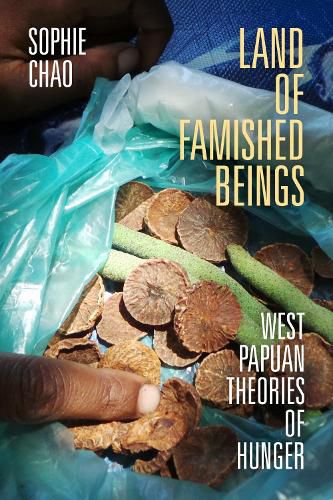Readings Newsletter
Become a Readings Member to make your shopping experience even easier.
Sign in or sign up for free!
You’re not far away from qualifying for FREE standard shipping within Australia
You’ve qualified for FREE standard shipping within Australia
The cart is loading…






In Land of Famished Beings, Sophie Chao examines how Indigenous Marind communities understand and theorize hunger in lowland West Papua, a place where industrial plantation expansion and settler-colonial violence are radically reconfiguring ecologies, socialities, and identities. Instead of seeing hunger as an individual, biophysical state defined purely in nutritional, quantitative, or human terms, Chao investigates how hunger traverses variably situated humans, animals, plants, institutions, infrastructures, spirits, and sorcerers. When approached through the lens of Indigenous Marind philosophies, practices, and protocols, hunger reveals itself a multiple, more-than-human, and morally imbued modality of being - one whose effects are no less culturally crafted or contested than food and eating. In centering Indigenous feminist theories of hunger, Chao offers new ways of thinking about the relationship between the environment, food, and nourishment in an age of self-consuming capitalist growth. She also considers how Indigenous theories invite anthropologists to reimagine the ethics and politics of ethnographic writing and the responsibilities, hesitations, and compromises that shape anthropological commitments in and beyond the field.
$9.00 standard shipping within Australia
FREE standard shipping within Australia for orders over $100.00
Express & International shipping calculated at checkout
In Land of Famished Beings, Sophie Chao examines how Indigenous Marind communities understand and theorize hunger in lowland West Papua, a place where industrial plantation expansion and settler-colonial violence are radically reconfiguring ecologies, socialities, and identities. Instead of seeing hunger as an individual, biophysical state defined purely in nutritional, quantitative, or human terms, Chao investigates how hunger traverses variably situated humans, animals, plants, institutions, infrastructures, spirits, and sorcerers. When approached through the lens of Indigenous Marind philosophies, practices, and protocols, hunger reveals itself a multiple, more-than-human, and morally imbued modality of being - one whose effects are no less culturally crafted or contested than food and eating. In centering Indigenous feminist theories of hunger, Chao offers new ways of thinking about the relationship between the environment, food, and nourishment in an age of self-consuming capitalist growth. She also considers how Indigenous theories invite anthropologists to reimagine the ethics and politics of ethnographic writing and the responsibilities, hesitations, and compromises that shape anthropological commitments in and beyond the field.